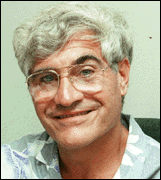

![]()
Gathering Places


![]()
Gathering Places
It is too soon to speculate on the nature of American retaliation for the Sept. 11 terrorist attacks on our nation, since neither the organizers nor collaborators have been clearly identified. The Pentagon has made it clear that the response will not be a single strike but a "broad and sustained campaign" not only against terrorists but against those who support them. America’s war on terrorism
will have implications for AsiaAs a result, it is not too soon to be asking what Washington might ask of allies and friends in Asia. The European response has been unequivocal; invoking Article 5 of the NATO Charter clears the way for support for any U.S. military response.
In Asia, it appears unlikely that the United States would call on any of its allies -- Australia, Japan, South Korea, the Philippines, and Thailand -- to participate directly in any retaliatory operation, although some may offer to do so. America's Asian allies, however, must be prepared unequivocally to stand behind any U.S. reaction and to provide logistical support if needed.
Japanese Prime Minister Junichiro Koizumi has gone on record stating that Japan "will spare no effort in providing assistance and cooperation" in support of America's war on terrorism. Even providing logistical support may necessitate some reinterpretation of Japan's self-imposed ban against collective self defense. That Japanese citizens were among those killed in New York should provide additional incentive for such an effort.
North Korea has joined South Korea in condemning the terrorist action against the United States and South Korean President Kim Dae-jung has proposed that the two states adopt a joint resolution opposing terrorism. North Korea should seize this opportunity.
Increased world attention on states that sponsor terrorism might also provide Pyongyang with the push needed to take the actions necessary to remove itself from this list, including the expulsion of Japanese Red Army terrorists who have enjoyed safe haven in the North for decades.
Throughout the Asia-Pacific region, Washington is likely to seek cooperation in its international fight against terrorism. Here U.S. and Chinese strategic objectives clearly overlap. China, like Russia, has condemned the attacks and appears willing to work with the United States to combat terrorism, although it remains to be seen if this will include support for strikes against countries that harbor terrorists.
The distinction between "interference in one's internal affairs" and eliminating safe havens of those who have interfered in America's internal affairs in a most horrific way has yet to be made by Beijing.
In identifying those responsible for the terrorist attacks, care must be taken to separate condemnation of Islamic extremism from Islam itself. Moslem nations such as Indonesia and Malaysia have condemned last Tuesday's terrorist attack. But Malaysian Prime Minister Mahathir Mohamad is arguing against retaliation.
Such actions reinforce rather than break the link between the extremists and the moderate Islamic community.
Finally, some have questioned how the events of Sept. 11 will affect America's security commitment to Asia. The Far Eastern Economic Review has speculated that the attacks could threaten Washington's "willingness to undergird the region's often shaky security," that the security of shipping through the Malacca Strait has somehow been "thrown into question" and that the Spratlys "suddenly seemed more vulnerable" as the U.S. 7th Fleet "went into self-defense mode."
This is nonsense. The sustained deployment of 500,000 U.S. forces during Desert Storm a decade ago did not result in diminution of America's security commitment toward Asia; nor should a decision to focus on countering terrorism.
Rather than resulting in a more hard-line position toward China and North Korea, as the FEER article speculates, an opportunity for greater cooperation between Washington and Beijing and perhaps even with Pyongyang has been created. What we are most likely to see is not the "opening up of a power vacuum" in Asia but a tendency of America's friends and allies to rally around the United States.
On a personal note, I have been deeply touched by the expressions of sympathy streaming in by phone, fax and e-mail from colleagues throughout Asia. This was not just an attack on America, it was an attack against humanity. Many nationalities, races and religions are represented among the dead and missing. Americans and Asians, together with the vast majority of humankind, grieve over this tragic, senseless loss of human life.
Ralph A. Cossa is president of the Pacific Forum, which is affiliated with the Center for Strategic and International Studies in Washington.